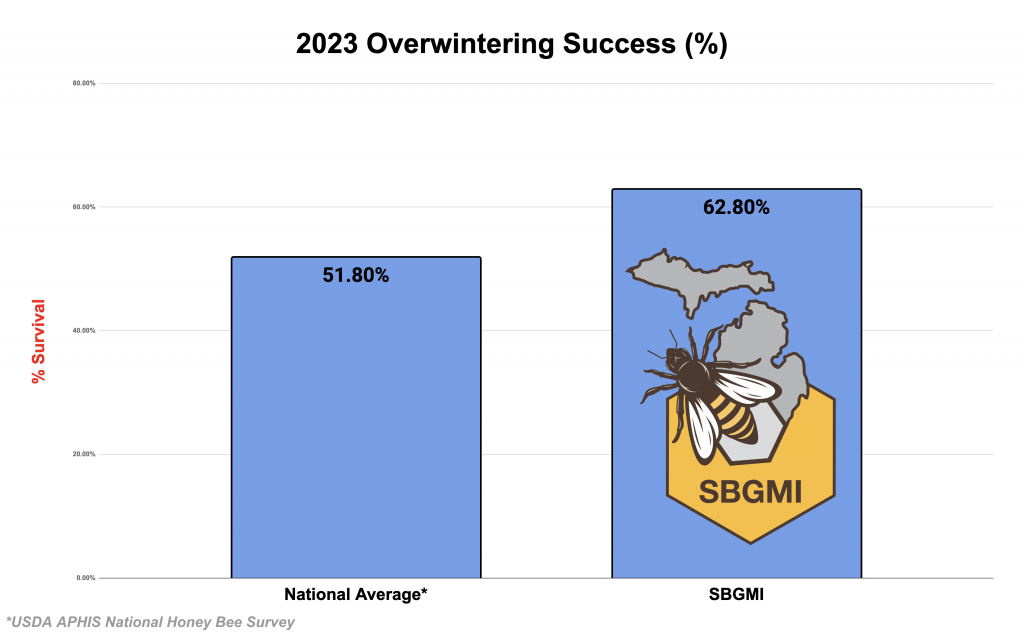At the beginning of this summer, we sent out a survey asking about your history, experience, and methods of beekeeping – and you sure did answer! Over 130 of you responded to the survey and provided valuable information that will serve as a snapshot and baseline going forward with additional surveys. So, what were some of the results? We’ll try to break these down into some bite-sized chunks and use the SBGMI blog over the coming months, but here are a few highlights.
While SBGMI started in Michigan, we’ve truly grown into a nationwide organization. While most survey respondents (65%) live in Michigan, our membership stretches from coast to coast. Here’s a map:
Not surprisingly, we also represent a wide cross-section of beekeeping experience. Ranging from brand-new beekeepers to more than 25 years of experience, the largest group of us has been keeping bees between 4 and 7 years.
We hear a lot about the importance of mentoring in beekeeping. The SBGMI attempts to address this through our Facebook mentoring channel, the earn-a-nuc program where a mentee partners with a mentor for one year and receives their first nuc colony free from the SBGMI, and our youth mentorship program – which has seen it’s first recipient through his first season! We asked how many actually have/had a specific mentor? It turns out, the need for mentoring is huge, and nearly half of respondents have never had any form of mentoring when starting their beekeeping journey. This demonstrates a critical and enduring need of the beekeeping field, especially in light of the challenges and complexity posed by the arrival of Varroa mites.
Mites and Mite Treatments:
A key element of mite control, whether you use chemical treatments or are a treatment-free beekeeper, is to know what your mite levels are! This is also important for any type of breeding program you may be running for genetic selection. And in fact, a clear majority of SBGMI respondents do monitor for mites.
A misconception of the SBGMI is that we are exclusively made up of treatment-free beekeepers. In fact, a strong majority of respondents actually DO treat colonies for mites with chemical interventions in some capacity. We emphasize that prophylactic treatment (treating without monitoring) is counterintuitive to selective breeding and identification of resistant stock.
Winter Survival:
All of us strive for our colonies to survive the winter regardless of our strategies for fighting against Varroa. According to the most recent survey data from the Bee-Informed Partnership the national overwintering survival rate is about 51.8% (48.2% annual loss). SBGMI members actually fare quite a bit better, with winter survival rate from 2022-2023 with a whopping 62.8% survival rate (37.2% annual loss).

Experience is everything in beekeeping – or is it? We wondered if years of beekeeping experience was clearly linked to better success in overwintering colonies. You may be surprised to find out that the answer is no! There is no significant statistical correlation between years of experience and overwintering success!

A huge thank you to all members who completed the first-annual SBGMI survey. Please look out for our Spring 2024 survey launching next May, and – as always – your participation and comments are immensely appreciated!
